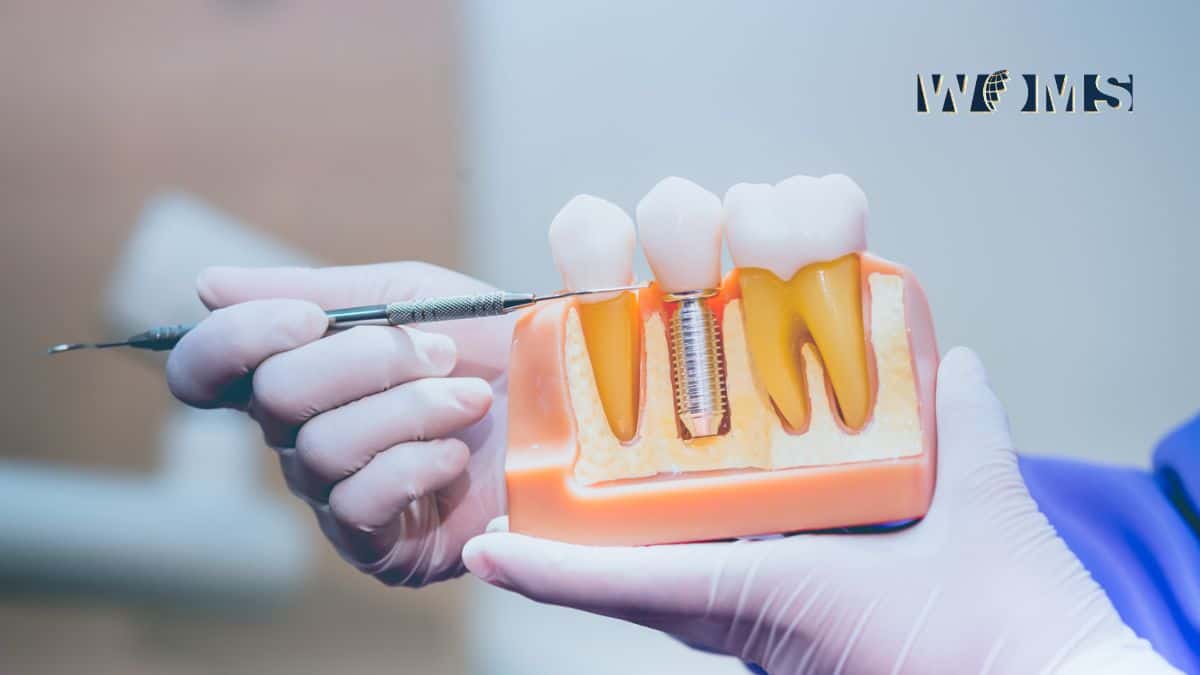What To Do Before And After Getting Dental Implants

If you’re tired of struggling with uncomfortable dentures or bridgework that just doesn’t fit right, consider dental implant surgery. This process involves using artificial teeth to replace missing or damaged teeth, providing a natural-looking and functional solution for patients seeking to enhance their smile and improve oral health. And the best part? Dental implants use metal, screw-like posts to mimic natural tooth roots, making them a more durable and long-lasting option.
Unlike traditional dentures or bridgework that may shift around in your mouth, dental implants are a stable and secure choice that can give you back your confidence in your smile. Plus, they’re an excellent solution when your mouth doesn’t have enough natural teeth roots to support dentures or bridgework tooth replacements.
Before getting dental implants
According to a study, the projected prevalence of dental implants ranges from 5.7% to 23% by 2026. Thus, getting implants is an excellent solution for people who want to enhance their smile and maintain good oral health.
But did you know that what you do before the procedure can significantly affect the outcome of your dental implant surgery? Preparing yourself mentally and physically before getting dental implants to achieve optimal results is essential.
That said, here are some tips and guidelines to consider so you can best prepare for your procedure:
Choose a qualified and experienced dental surgeon
The first step in getting dental implants is to find the right dental surgeon. You want someone qualified and experienced with a knack for making you feel comfortable in the dental chair.
Start by asking around for recommendations from family and friends. If you’re new to the area or need someone to ask, hop online and do some research. Look for a dentist specializing in dental implant procedures with a good track record of successful placements. Don’t be afraid to read reviews and check out before-and-after photos to verify their work.
Schedule a consultation
Once you’ve found the right one, the next step is to schedule a consultation with them. It’s where you’ll get to know your dentist and discuss your options for dental implants. During the consultation, your dentist will look at your oral health and talk to you about the implant procedure.
Don’t be afraid to ask questions during the consultation. Your dentist is there to help you, so voice any concerns or doubts. It’s your chance to learn about the benefits of dental implants and any potential risks involved.
By the end of the consultation, you should understand what to expect from the procedure and whether dental implants are the right choice for you.
Follow pre-operative instructions
Before the procedure, your dentist will provide you with some pre-operative instructions to follow. These instructions include avoiding certain foods or medications, quitting smoking, or taking antibiotics.
Although it may seem like a hassle, following these instructions is crucial to reduce the risk of complications and ensure successful implant placement. Think of it as a small investment in your long-term oral health.
Feel free to ask any questions you may have during this process. They’re there to help you feel comfortable and informed. The more you know what to expect, the more confident you’ll feel going into the procedure. Plus, following these instructions shows your commitment to oral health and can increase the chances of a speedy and smooth recovery. So, take a deep breath and trust the process you’re on your way to a healthier smile.
After getting dental implants
Caring for your dental implants after surgery is crucial to ensure their longevity and a smooth recovery. The recovery period can be challenging for some patients and taking it easy and staying relaxed during this time is essential.
Take note of the tips below to ensure your recovery will be faster and smoother:
Follow post-operative instructions
Your dentist will provide post-operative instructions to help you recover and heal properly. These instructions may include taking pain medication, avoiding certain foods, and practicing good oral hygiene. Refraining from exercise or heavy lifting for at least 72 hours following the procedure is also recommended to prevent increased pain and swelling due to an elevated heart rate.
Following these instructions carefully is essential to avoid any potential risks and complications. With the right aftercare, you can ensure that your dental implants will last for years, giving you a confident and healthy smile.
Attend follow-up appointments
Your dentist will schedule follow-up appointments to monitor your healing progress, check the integration of your implants with your jawbone, and address any concerns or issues that may arise after your dental implant procedure.
These check-ins are critical to ensuring that the outcome is successful and that potential issues are addressed promptly, giving you the peace of mind that your investment in your dental health is in good hands. So, attend your follow-up appointments, and let your dentist provide the necessary support and guidance to ensure your implants last a lifetime.
Practice good oral hygiene
Taking care of your dental implants is crucial to their longevity and your overall oral health. You must maintain good oral hygiene habits, such as twice-day tooth brushing, daily flossing, and antibacterial mouthwash use to keep your implants clean and free of harmful bacteria.
Your dentist may also suggest additional tools or techniques for cleaning around your implants to prevent plaque buildup, which can lead to infection and other complications.
While dental implants have a high success rate, there are instances where the bone doesn’t fuse properly to the metal implant. Smoking, for example, can increase the risk of implant failure and complications.
In cases where the bone fails to fuse sufficiently, the implant will be removed, and the bone will be cleaned up. But don’t worry; if the bone fails to fuse with the metal implant, you can opt for the procedure again after three months, and your dentist will assess any risk factors and work out a plan to guarantee the success of your dental implant procedure.
Final words
Dental implants offer a great solution to enhance oral health and bring back a beautiful smile. However, dental implant failure is still possible, estimated to occur in about 5-10% of dental implants, whether a few months after the surgery or years later.
That’s why taking certain steps before and after getting dental implants is essential to ensure a successful outcome. By choosing a qualified dentist, following pre-operative and post-operative instructions, attending follow-up appointments, and practicing good oral hygiene, you can enjoy the benefits of dental implants for years to come.




